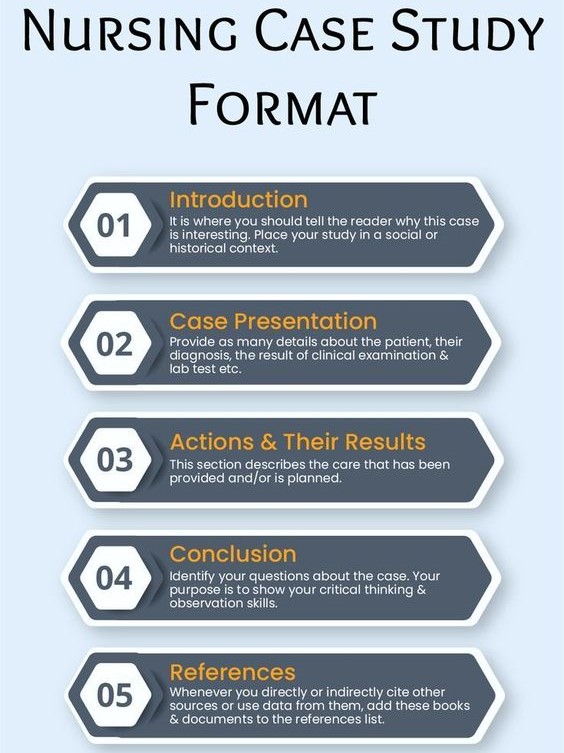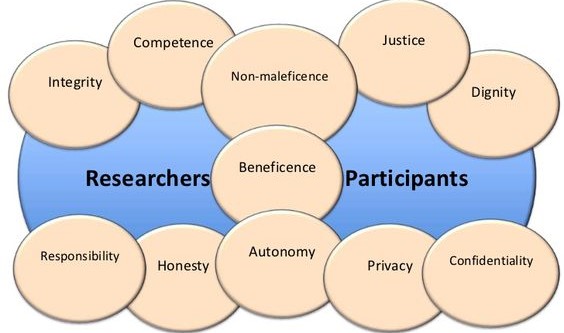Nursing case study writing is a cornerstone of nursing education and practice. It allows students and professionals to analyze real-life patient scenarios, apply theoretical knowledge, and develop critical thinking skills. This guide provides a comprehensive framework for approaching nursing case study writing, from conceptualization to completion.
Step-by-Step Guide to Stellar Nursing Case Study Writing
1. Understanding the Purpose of a Nursing Case Study
Before diving into the intricacies of writing, it's crucial to understand the purpose behind nursing case study writing. These studies serve several objectives:
- To enhance critical thinking and clinical reasoning: By analyzing complex patient situations, nurses develop the ability to identify relevant information, prioritize needs, and formulate effective interventions.
- To foster knowledge application: Nursing case study writing encourages students and practitioners to connect theoretical concepts with real-world clinical practice.
- To improve communication and documentation skills: Nursing case study writing necessitates clear and concise writing, highlighting the importance of effective communication within the healthcare setting.
- To advance patient-centered care: By focusing on individual patient experiences, nursing case study writing emphasizes the importance of personalized care and holistic assessment.
- To stimulate reflection and learning: Nursing case study writing encourages self-reflection, allowing nurses to evaluate their knowledge, skills, and decision-making processes.
2. Choosing a Case Study Topic
The foundation of a compelling nursing case study is a well-chosen topic. Consider these factors:
- Relevance to your learning objectives: The case study should align with your current course of study or your professional development goals.
- Patient complexity: Select a case study that presents a challenging or unique patient scenario, offering opportunities for in-depth analysis.
- Availability of data: Ensure you have access to sufficient information regarding the patient's history, diagnosis, and treatment plan.
- Ethical considerations: Choose a case study that respects patient confidentiality and avoids disclosure of sensitive information.
3. Gathering Information: Building a Strong Foundation
Once you've chosen a topic, gather comprehensive information to support your nursing case study writing.
- Patient Chart Review: Access the patient's medical record for vital signs, lab results, medications, procedures, and documentation of their health history.
- Interviews: Conduct interviews with the patient, family members, or healthcare professionals involved in the case.
- Literature Review: Explore relevant medical literature, research articles, and nursing guidelines to gain a deeper understanding of the patient's condition and appropriate interventions.
- Clinical Observations: If possible, observe the patient during their care to gather firsthand insights into their physical and emotional state.
4. Structuring Your Nursing Case Study
A well-structured nursing case study enhances clarity and organization. Consider the following sections:

- Introduction: Briefly introduce the patient and their presenting problem. State the purpose of the nursing case study and its relevance.
- Patient History and Assessment: Provide a detailed account of the patient's medical, social, and family history. Include a comprehensive physical assessment.
- Diagnosis and Treatment: Outline the patient's diagnosis and explain the rationale behind the chosen treatment plan.
- Nursing Interventions: Describe the nursing care provided, including rationale for each intervention, specific nursing actions, and monitoring parameters.
- Evaluation: Analyze the effectiveness of the nursing interventions and discuss the patient's response to treatment.
- Conclusion: Summarize the key learning points derived from the nursing case study and discuss any future implications for nursing practice.
5. The Art of Narrative: Engaging the Reader
While nursing case study writing requires accurate information and logical analysis, it also benefits from engaging narrative techniques.
- Focus on the Patient: Use the patient's story as the central thread, weaving in medical details to illustrate their individual experience.
- Use Vivid Language: Employ descriptive language and sensory details to bring the patient's story to life.
- Emphasize the Human Element: Acknowledge the patient's emotions, fears, and hopes to foster empathy and understanding.
- Maintain Professionalism: While storytelling can be engaging, always maintain a professional tone and avoid using overly emotional language.
6. Essential Components of Nursing Case Study Writing
A comprehensive nursing case study incorporates several essential elements:
- Patient Confidentiality: Ensure all patient information is de-identified and protected according to HIPAA guidelines.
- Accurate Data: Present factual data with accuracy, referencing sources whenever necessary.
- Critical Analysis: Apply critical thinking skills to analyze the patient's condition, the chosen interventions, and their effectiveness.
- Evidence-Based Practice: Support your statements and interventions with relevant evidence from medical literature, nursing guidelines, and research findings.
- Ethical Considerations: Address ethical dilemmas or challenges encountered in the case study and demonstrate your understanding of ethical principles in nursing practice.
7. Strategies for Effective Writing
Nursing case study writing requires meticulous attention to detail and effective writing strategies.
- Develop a Clear Outline: Before writing, organize your thoughts and create a structured outline for your case study.
- Write in a Concise and Clear Style: Use precise language and avoid jargon.
- Use Proper Grammar and Punctuation: Pay attention to grammar, spelling, and punctuation to ensure clarity and professionalism.
- Use Headings and Subheadings: Organize your content with clear headings and subheadings to improve readability and structure.
- Integrate Visual Aids: Use tables, charts, and diagrams to present complex information visually.
- Proofread and Edit Carefully: Before submitting your nursing case study, proofread it meticulously for errors and ensure it meets all formatting requirements.
Examples of Nursing Case Study Topics
To inspire your nursing case study writing, consider these examples:
- Chronic Pain Management: Explore the challenges and strategies involved in managing chronic pain in patients with conditions like arthritis or fibromyalgia.
- End-of-Life Care: Analyze the ethical and practical considerations surrounding end-of-life care, including advance directives, palliative care, and bereavement support.
- Diabetes Management: Examine the role of nurses in educating patients about diabetes management, including medication adherence, self-monitoring, and lifestyle modifications.
- Mental Health Care: Explore the nursing interventions for patients with anxiety disorders, depression, or post-traumatic stress disorder.
- Maternal and Child Health: Analyze the nursing care provided during labor and delivery, postpartum recovery, or neonatal intensive care.
Embracing the Power of Nursing Case Studies
Nursing case study writing is an invaluable tool for nurses at all stages of their career. It fosters critical thinking, improves knowledge application, enhances communication skills, and promotes patient-centered care. By embracing the power of nursing case study writing, you can elevate your nursing practice and contribute to the advancement of patient care.
Additional Resources for Nursing Case Study Writing
To further enhance your nursing case study writing skills, explore these resources:
- Nursing journals and publications: Publications like the American Journal of Nursing and the Journal of Nursing Scholarship provide examples of high-quality nursing case studies and research articles.
- Nursing textbooks and manuals: Many nursing textbooks and manuals include sections dedicated to nursing case study writing and provide valuable guidance and examples.
- Online resources and databases: Websites like CINAHL (Cumulative Index to Nursing and Allied Health Literature) offer access to a vast collection of nursing research and case study resources.
Remember, nursing case study writing is a journey of exploration, analysis, and reflection. Embrace the challenge and allow it to shape your understanding of the nursing profession and the patients you serve.
Common Pitfalls in Nursing Case Study Writing
While nursing case study writing offers a powerful learning opportunity, it's crucial to avoid common pitfalls that can detract from the quality and impact of your work. Here are some key areas to be mindful of:
1. Lack of Focus and Clarity:
- Avoid rambling: Stick to the central theme of your nursing case study and avoid introducing irrelevant information.
- Establish a clear purpose: Define the specific learning objectives you aim to achieve through your nursing case study writing.
- Use concise language: Avoid unnecessary jargon or overly technical terms.
- Structure your content: Employ headings and subheadings to guide the reader and ensure logical flow.
2. Inadequate Information Gathering:
- Thorough patient data collection: Ensure you have gathered sufficient and accurate information from the patient's medical records, interviews, and other relevant sources.
- Validate information: Double-check the accuracy of your data and ensure it's consistent with established medical knowledge.
- Address all aspects of the case: Explore the patient's physical, psychological, and social aspects relevant to their care.
3. Weak Analysis and Interpretation:
- Critical thinking: Go beyond simply describing the patient's situation. Analyze the contributing factors, assess the effectiveness of interventions, and draw meaningful conclusions.
- Evidence-based approach: Support your arguments and interventions with relevant evidence from research articles, nursing guidelines, and established best practices.
- Avoid generalizations: Focus on the specific details of the case and avoid making sweeping statements about all patients with similar conditions.
4. Insufficient Ethical Considerations:
- Patient confidentiality: Ensure all patient information is de-identified and protected according to HIPAA guidelines.
- Informed consent: Obtain informed consent from the patient or their legal representative before using their case study for educational or research purposes.
- Professional boundaries: Maintain professional distance and avoid disclosing sensitive patient information.

5. Inadequate Writing Style and Presentation:
- Clear and concise language: Use simple, straightforward language that is easy for the reader to understand.
- Appropriate grammar and punctuation: Pay attention to grammar, spelling, and punctuation to ensure a professional and polished presentation.
- Logical flow: Ensure your nursing case study writing flows smoothly and logically, guiding the reader through the key points.
- Visual aids: Use tables, charts, and diagrams to enhance clarity and present complex information effectively.
6. Neglecting Proofreading and Editing:
- Multiple proofreads: Have several individuals review your nursing case study for clarity, grammar, and accuracy.
- Attention to detail: Proofread carefully for any spelling or punctuation errors that could compromise the professionalism of your work.
- Format adherence: Ensure your nursing case study writing adheres to the specified formatting guidelines.
By diligently avoiding these pitfalls, you can elevate the quality of your nursing case study writing and effectively communicate your understanding of complex patient scenarios. Remember, your nursing case study is a testament to your critical thinking, knowledge application, and commitment to delivering quality patient care.
Get Professional Nursing Case Study Writing Help
At Exemplary Dissertation, we are the professionals that you should always engage when seeking nursing dissertation writing help. We can assist you in every step of the case study writing from conceptualization to completion. Besides, our writers can also help you with writing authentic nursing research papers, essays and dissertations.